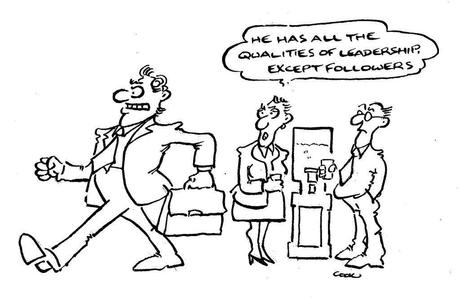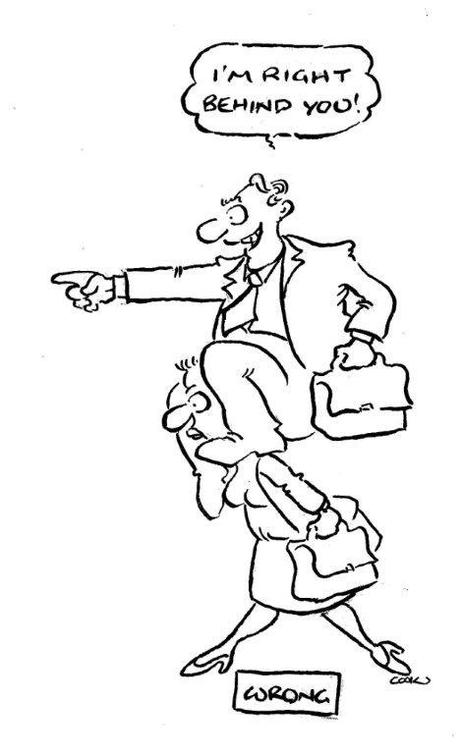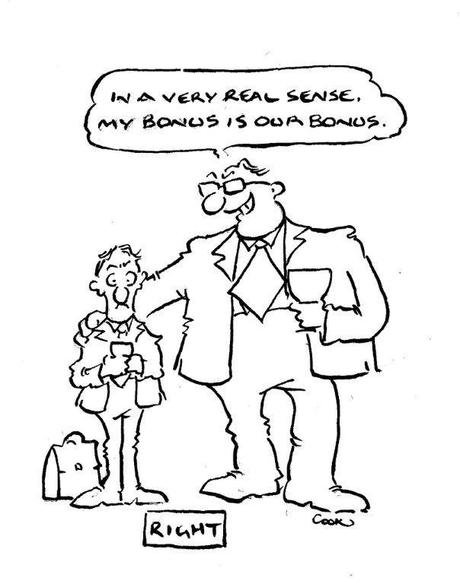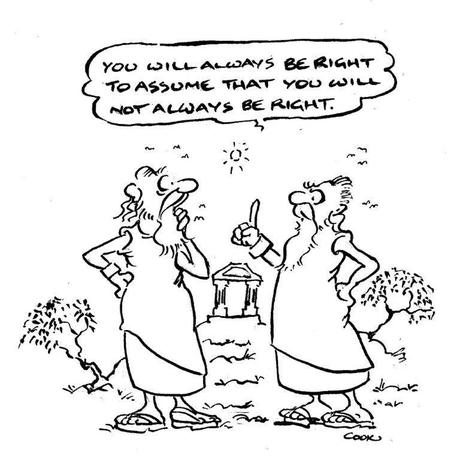Sometimes it’s someone else’s job.
 Winston Churchill was a great wartime leader. If you took out the word “wartime”, would the statement still stand?
Winston Churchill was a great wartime leader. If you took out the word “wartime”, would the statement still stand?
At school his achievements were patchy. As a politician he was deeply divisive. He made some massive policy errors. By returning Britain to the gold standard he helped trigger the Great Depression.
If we add back “wartime”, does it still stand? Churchill’s famous doggedness led to major military blunders in WWI, not least of all Gallipoli. He was too stubborn to be a brilliant military strategist.
Yet that same stubbornness was the principle strength that inspired the British war effort for four years in WWII and underwrote his legacy.
 Spotting leaders is tricky
Spotting leaders is tricky

It is fashionable today to identify people with senior executive potential and groom them in leadership teams. Prior to WWII, would you have taken Churchill, this brandy-swilling, cigar-addicted insomniac prone to deep depression, and put him in you leadership group?
Leadership is ephemeral. It’s often episodic and short-lived and turns up anywhere in your lifespan, from boy scouts to retirement. Churchill was 65 and still to show his mettle when appointed Prime Minister in 1940.
In her book on the consulting industry, Karen Phelan (click here to see my review) says much the same of Ulysses S Grant, a brilliant general credited with winning the American Civil War for the North.
Before that, he was considered a failed farmer, a fairly ordinary soldier and known to have a drinking problem. Not exactly a preferred candidate for officer training.
What about the obvious candidates?

Other starters might be Stephen Cohen – once dubbed ‘the hedge fund king” by the Wall St Journal – whose firm, SAC Capital somehow consistently beat the market. This month it pleaded guilty to insider trading and was fined US$1.8bn. Or Dick Fuld, named a No1 CEO by Institutional Investor just over a year before Lehman Brothers collapsed.
The list could go on. Leadership of historic proportions comes and goes and often seems conditional on the times.
Leaders are hard to pick. A 24 year-old dropout, expelled from school, struggling with dyslexia and running a loss-making student newspaper from a disorganised communal flat might not make the cut. If so, Richard Branson would not have gotten onto your team.
 The leadership illusion
The leadership illusion

The trouble with great leaders is we think they are great all the time. They’re not. Just like all of us, they don’t always go from A to B in a straight line. Mid-career, Steve Jobs was sacked from his own leadership team.
There are times when people shine and times when they don’t. That’s when the role needs to be delegated to the right person. Notably, Jobs left it to Wozniak to actually build the first Apple computer.
There is one powerful leadership skill that can drive a great deal of management success. It’s knowing when to step up, and knowing when to step aside. It’s probably summed up by the word humility. When it comes to effective leadership, it can be pretty handy.

